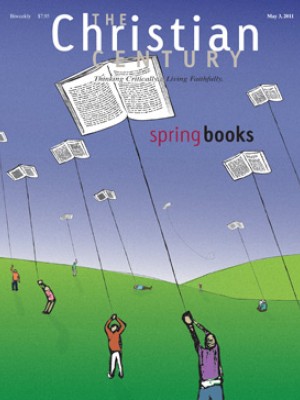British astrophysicist wins Templeton Prize
A British theoretical astrophysicist who has achieved renown for his
study of the cosmos and for sounding warnings about the future of
humanity has won the $1.6 million 2011 Templeton Prize.
Martin J.
Rees of Cambridge University, a former president of Britain's
prestigious Royal Society, was announced in London April 6 as the
winner by the John Templeton Foundation. The annual prize honors an
individual who has made "exceptional contributions to affirming life's
spiritual dimension." Rees is a somewhat unorthodox choice because he
holds no formal religious beliefs.
Rees, 68, has long studied
questions surrounding black holes, the big-bang theory and what some
call the "dark age" of the early universe. Rees has also speculated on
the idea of infinite universes, sometimes called "multiverses," and has
pondered how large physical reality actually is.
Read our latest issue or browse back issues.
Rees has helped
reshape "crucial philosophical and theological considerations that
strike at the core of life, fostering the spiritual progress that the
Templeton Prize has long sought to recognize," the Templeton Foundation
said in announcing the prize.
"The questions Rees raises have an
impact far beyond the simple assertion of facts, opening wider vistas
than any telescope ever could," said John M. Templeton, Jr., president
and chairman of the foundation started by his father. "By peering into
the farthest reaches of the galaxies, Martin Rees has opened a window on
our very humanity, inviting everyone to wrestle with the most
fundamental questions of our nature and existence," he said.
In
recommending Rees for the honor, Robert Williams, president of the
International Astronomical Union, said Rees "is very unusual in that he
constantly touches on spiritual themes without dealing explicitly with
religion. I do not know whether he is a theist, for example."
In
an interview, Rees acknowledged that he holds no formal religious
beliefs but honors the traditions of the Anglican Church. "I do
participate in services because I value them for their aesthetic and
social value," he said.
Rees has won notoriety as a scientist
concerned with the survival of the planet. In a 2004 book, published in
the United States as Our Final Hour, Rees argued that
civilization likely will suffer a severe setback in the next century. He
argued that humans, with their interconnected world vulnerable to
disruption, have no more than a 50-50 chance of surviving until 2100
without some sort of serious event or problem linked to technology or
the environment.
Though hopeful about what science and technology can do to improve life, "in terms of politics, I am not optimistic." —RNS





